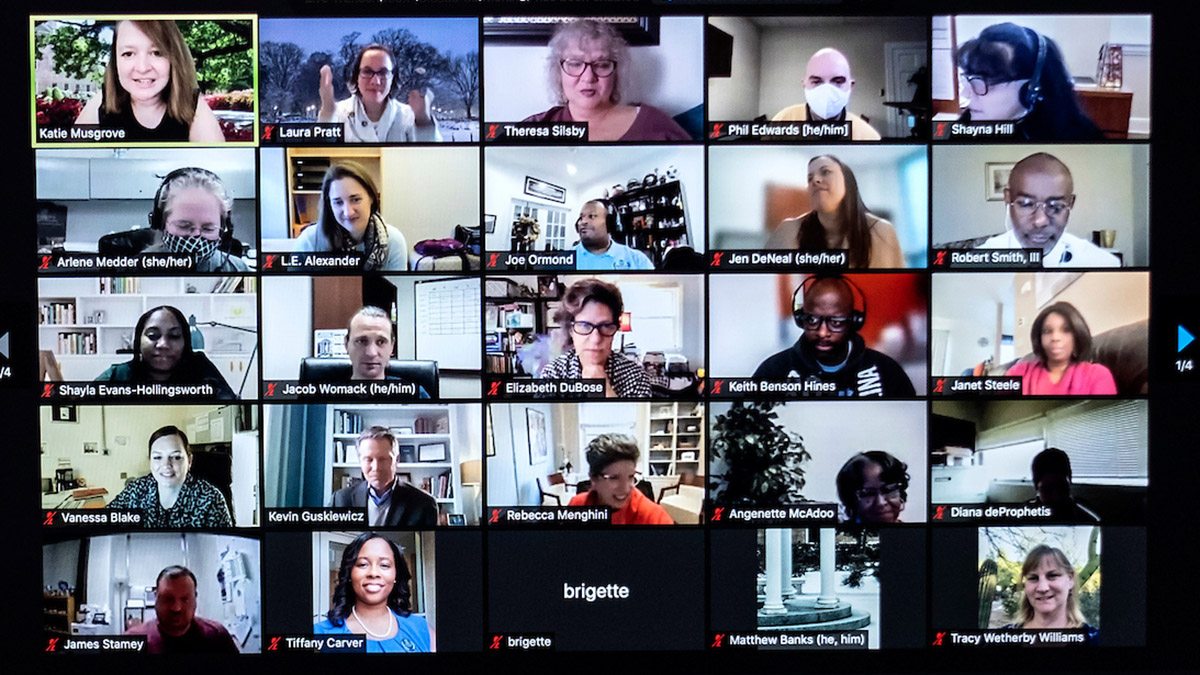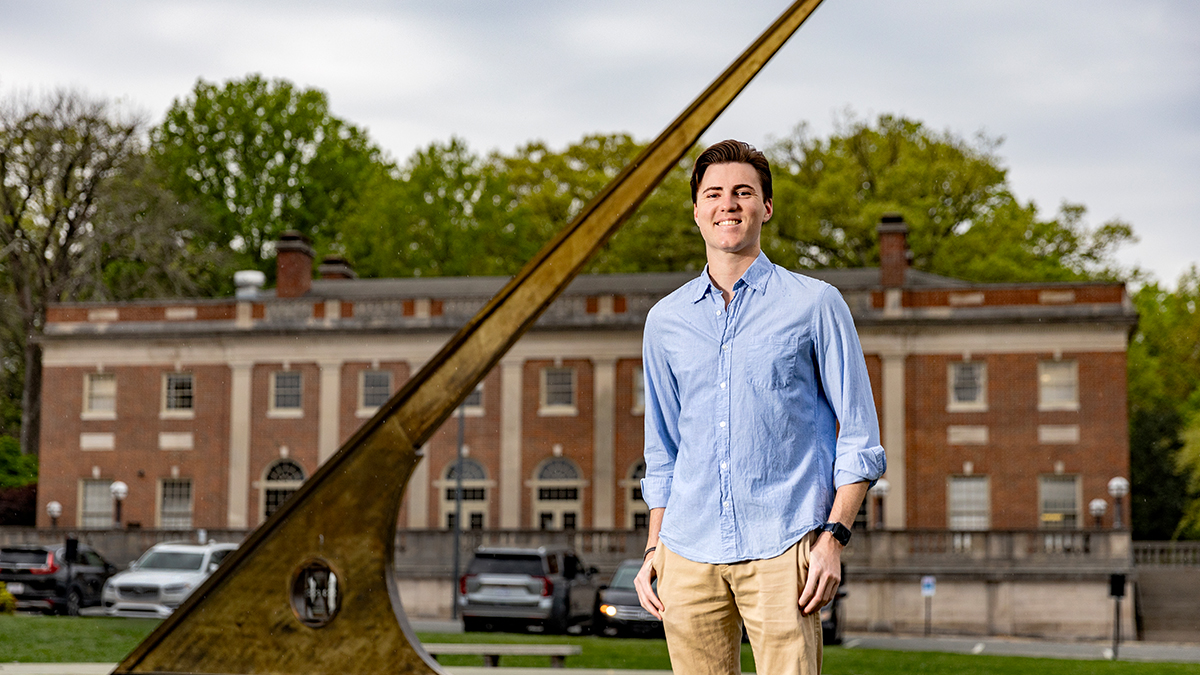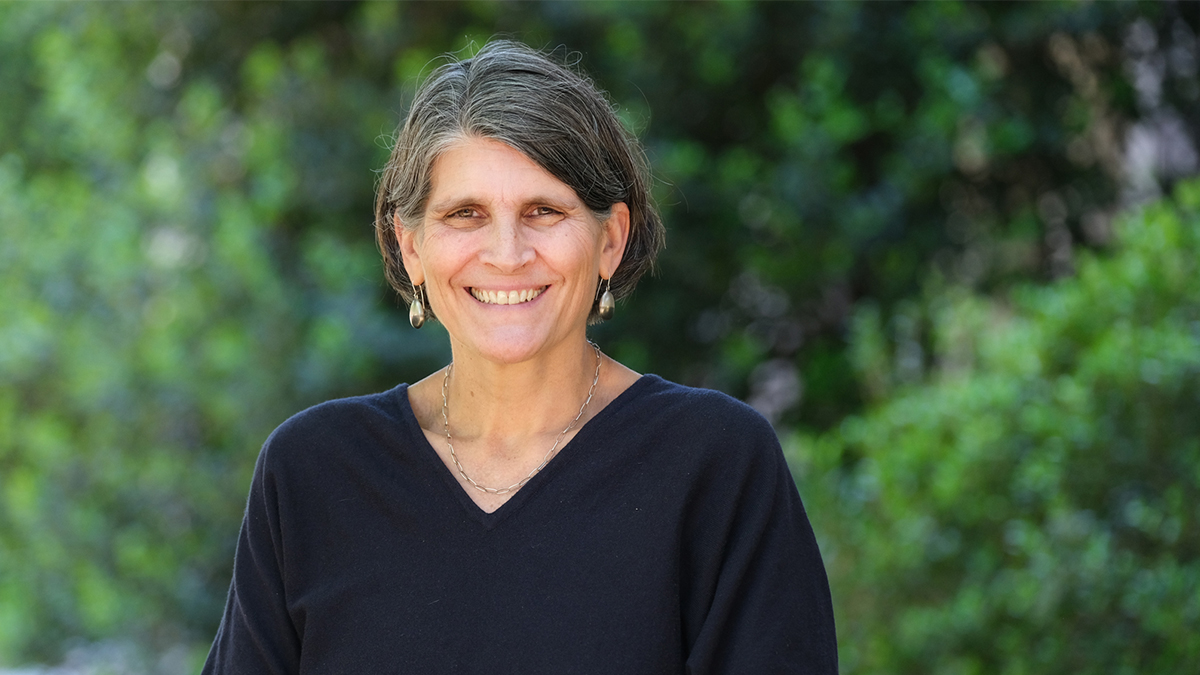Employee Forum hears about COVID-19 boosters, pay increases and mental health plans
The forum’s January meeting featured updates on Carolina’s COVID-19 mitigation efforts, dates when paychecks will include raises and efforts to support campus mental health.

The safest return to campus in the spring semester, built on the latest COVID-19 prevention and the University’s efforts to build a “culture of compassion” while prioritizing the mental health of students, faculty and staff, was on the minds of delegates at the Employee Forum’s Jan. 5 meeting.
Chancellor Kevin M. Guskiewicz told delegates that University leadership has worked tirelessly with public health and infectious disease experts during the past month to ensure a safe return to campus. Vice Chancellor for Student Affairs Amy Johnson and Assad Meymandi Distinguished Professor and Department of Psychiatry Chair Dr. Samantha Meltzer-Brody reported on a variety of support programs for mental health concerns. And, the forum learned about an opportunity for University employees to buy houses in Chapel Hill’s Northside neighborhood.
“The omicron variant has been on everyone’s minds,” Guskiewicz said. “What we’re learning with this variant is that unlike delta and the original COVID-19, things change about every 48 hours. So, our experts are constantly in meetings.
“All of the decisions that we’re making are to ensure the safest return for our students, and when I say safest, I’m talking about both the physical and mental health of our students. We are also factoring in the need for flexibility of our faculty and staff because your physical and mental health are equally important to us.”
Guskiewicz referenced the Dec. 31 communication to campus authorizing deans to temporarily modify modes of instruction for the semester’s first two weeks of spring. “We can’t go fully remote. It’s just not going to work. We wanted to give the option to deans to work with faculty who wanted to be back and needed to be back in person for a variety of reasons and those who could go remote temporarily,” he said.
Guskiewicz also:
- Recommended that everyone at Carolina get a COVID-19 vaccine booster when they are eligible to do so. Campus Health and the Student Stores Pharmacy provide booster vaccinations with no appointment necessary.
- Said that employees and students who test positive should remain isolated for five days if asymptomatic or if symptomatic for at least five days or until symptoms improve, regardless of vaccination status.
- Asked managers to accommodate isolation period requirements of employees who have been exposed or infected.
“We want to make sure that if people are sick, they feel inclined to stay home,” said Becci Menghini, vice chancellor for human resources and equal opportunity and compliance. “And if they have an asymptomatic positive that they will stay home knowing that their leave bank is not going to be decimated as a result of that.”
Menghini stressed that a booster shot provides added protection and lessens the severity of COVID-19. “The biggest thing you can do is to get a booster,” she said.
Menghini also said that:
- The Environment, Health and Safety website will be updated to accept booster acknowledgments from employees. Employees will receive a message encouraging them to upload vaccine cards after a booster. A federal vaccine requirement, which was to begin Jan. 18, is on hold as the Supreme Court hears arguments over workplace vaccine requirements.
- The legislature-authorized 2.5% salary increase will be reflected in paychecks this month — biweekly paid employees on Jan. 28 and monthly paid employees on Jan. 31.
- The freeze on new hires ended in December.
- Human Resources is updating the Essential Action form that units use for creating new positions or upgrading positions.
Mental Health Summit and plans for continued care
Johnson and Meltzer-Brody began a segment on campus mental health with a report on November’s day-long Mental Health Summit.
The summit’s total attendance of 835 included 558 staff, 166 faculty and 111 students. Meltzer-Brody said that mental health issues are front and center broadly in society and certainly at Carolina.
“Although the summit was a deep dive into this topic for a whole day, it was just a day,” Johnson said. “There is no way that we could have covered the breadth and depth of the huge mental health crisis that we have on our minds globally in one day.”
Themes emerging from the summit included:
- Employees experiencing high levels of stress and burnout.
- A need for discussions about salary levels, compensation and benefits.
- A desire for mental health days and flex work schedules.
- Confusion about roles and expectations, particularly when assigned extra duties.
Johnson said that staff voices and needs are diverse and that representation from a variety of departments, backgrounds, ethnicities and beliefs is needed to address mental health on campus.
Future plans for building a “a culture of compassion,” Johnson said, include:
- Carolina becoming a JED Campus on Feb. 22. The Jed Foundation provides expertise, resources and tools for protecting the emotional health of and preventing suicide among teens and young adults.
- Launching Heels Care Network and an associated mental health hub website to offer resources to employees and students, while continuing services such as mental health first aid and guidance on reporting students of concern and external support.
- Planning for mental health seminars and a mental health colloquium in May.
In other business:
- Christine Abernethy, director for housing justice at the Marian Cheek Jackson Center in Chapel Hill’s Northside area, outlined the center’s work. The center trains youth leaders, 400 of whom are Carolina students, to help local citizens with equitable housing and access to food. Carolina employees looking to buy a house may contact Abernethy about efforts to match buyers with Northside properties that the center sells.
- Jessica Pyjas, work/life and wellness program manager in the Office of Human Resources, discussed class offerings found on the Carolina Talent website and the Helping Heels directory of caregivers for children, elders and pets.
- Forum members passed a resolution honoring Executive Vice Chancellor and Provost Robert Blouin, who will leave the position at the end of January. The resolution recognized Blouin’s work to deepen relationships between students, faculty and staff and his leadership in tackling the University’s COVID-related challenges.




